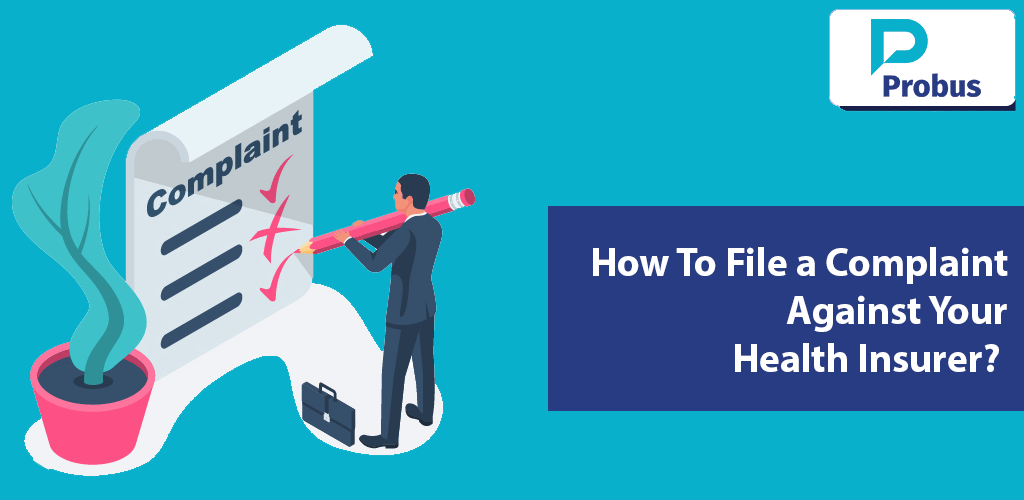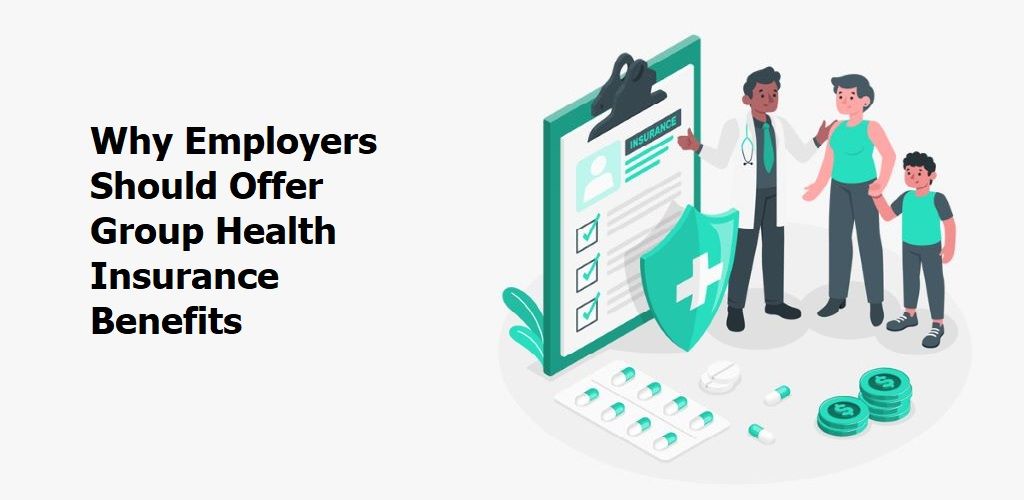Are you not satisfied with your insurance policy provider? Are you not getting enough amount as promised by the company? If so, it’s time to file a complaint immediately against your health insurer.
You can approach to the Insurance Regulatory and Development Authority of India (IRDAI) to seek a resolution if you are dissatisfied with the services provided by your health insurance provider. There are various approaches you might use while dealing with them.
You are free to make a complaint with the health insurer if you have an issue with the way a health insurance claim is processed. Starting with a complaint to the insurer directly, there are many avenues to address any dispute with a health insurance provider. It is possible to escalate the issue to the Insurance Regulatory and Development Authority of India if the resolution is unsatisfactory (IRDAI). A Civil Court or the Ombudsman can be contacted for further escalation of an unresolved dispute.
The step-by-step process in which a policy dispute can be resolved in different ways is mentioned below.
Types of Insurance Frauds
Here is a list of the different yet common types of insurance fraud that you should know about.
- Application Fraud
When you knowingly and willfully supply false information on an insurance application, this is called application fraud. With up to two-thirds of all denied life insurance claims attributable to it, it is typically the most prevalent type of insurance fraud.
It is not fraud if you omit to mention a recent medical operation you underwent or accidentally record a slightly lower weight on your application. Since you didn’t intentionally mislead them, you’ll still receive an offer even though the underwriter will revise your application and your rates might be more than what was initially offered.
- Phony Policy Fraud
Sometimes fraudsters posing as insurance agents “sell” fraudulent policies to unwary clients in order to collect the premiums. To gain your trust, the con artists pretend to work for a well-known, reputable company before asking for cash or direct payments for a policy.
Payments for life insurance should always be made directly to the insurance provider. The payee should always be the insurance company itself, never an individual. Brokers and agents can process the payments, and that may entail providing payment information over the phone – another reason to make sure you’re working with a licensed agent.
- Forgery
This kind of life insurance fraud happens when unauthorized individuals, frequently a spouse or family member, gain access to the policy and alter the beneficiaries or owner. A person would need to fabricate documents or assume another person’s identity to make changes to a policy held by someone else because only the policy owner is permitted to make changes to a policy. You risk having your claim rejected and facing legal action for life insurance fraud based on forgery.
- Inflation Fraud
This kind of scam frequently looks unimportant. It is just the straightforward process of slightly increasing the bill when you submit an insurance claim.
By having your car upgraded rather than just repaired, inflation fraud involves mailing your insurance company the total amount. It’s a doctor billing your health insurance for a few tests you didn’t require or that he didn’t actually perform. The person who filed a slip-and-fall claim claims they are unable to lift their arm, but the next day they are playing tennis outside.
- False Police Reports
It is significant to highlight that submitting a fraudulent police report is a common component of insurance fraud.
For instance, the police should be notified of any accident involving a moving car. The same is true whenever you assert that your property was taken, set on fire, or otherwise maliciously harmed. A copy of the police report must be submitted with any pertinent claims, according to the majority of insurance policies.
Ways To File a Complaint Against Your Health Insurance Company
The following are the steps of the list of the ways to file a complaint against your health insurance company or provider.
- Register a Complaint with your Health Insurance Company
The policyholder must go to the branch’s Grievance Redressal Office before filing a complaint with the health insurance company. The complaint must be made in writing and include any supporting materials. You will receive a formal acknowledgment along with the complaint’s filing date. In most cases, the insurance company has 15 days to settle the complaint. The matter may be escalated to the IRDA if this does not occur.
The policyholder must contact the IRDA’s Grievance Redressal Cell through email or the customer service helpline in order to file a complaint against a health insurance provider with the agency. After filing a complaint, you can track its development using the Integrated Grievance Management System provided by the IRDA. The insurance policyholder may also write or fax the Insurance Regulatory and Development Authority.
- Filing a complaint with the IRDA
The Turnaround Time (TAT) for the various services provided by insurance carriers to the insured has been established by IRDA. The IRDA Protection of Policyholders’ Interests (PPHI) Regulations, 2002, include the specifics of this regulation. Depending on the kind of service or grievance redressal the company offers, a maximum turnaround time has been established for life insurance companies as well as general insurance companies.
Here is the list of the contact details of IRDAI.
Toll Free Number: 1800 4254 732/ 155255
E-mail ID: complaints@irda.gov.in
Postal Address: Consumer Affairs Department Insurance Regulatory and Development Authority, 3-5-817/818, 9th Floor, United India Towers, Hyderguda, Basheerbagh Hyderabad – 500 029
Fax: 040-66789768
- Filing a complaint through IGMS
When a policyholder has a complaint or issue with their health insurance provider, they can register with the Integrated Grievance Management System, an online forum for reporting complaints created by the IRDA, in order to escalate the situation. These tools for grievance settlement and monitoring allow IRDA to provide centralized access to the insured person and classify complaints in accordance with pre-established rules.
Each complaint that is registered with the IGMS is given a unique complaint ID, which is then forwarded to all the relevant departments for use in resolving the issue. Additionally, all complaints are given a turnaround time (TAT), and notifications are set up for any tasks that haven’t been finished.
Things to note while filing a complaint with the IGMS:
- A complaint must be filed with the insurer first, and only if no action has been done by the insurer may it be escalated to the IRDA.
- An IGMS complaint will pass through both the IRDA repository and the insurer’s system.
- The IRDA has full access to and control over the IGMS.
- The system has precise Turnaround Time (TAT) targets for tracking complaint-related activity.
- Grievance Resolution Through Ombudsman
If an issue has not been handled by the insurance company, you can escalate it with the help of the Insurance Ombudsman. Under the following circumstances, you may contact the Insurance Ombudsman with a complaint:
- Your claim has been denied in part or in full.
- Despite paying the premium, you still haven’t gotten your policy.
- The resolution of claims is being delayed
- There is a disagreement over whether a premium is payable or paid.
- There is a disagreement over the clauses listed in the Policy Schedule.
- Consumer Court
You can file a complaint with the consumer court if it hasn’t been settled yet. Health insurance complaints are handled by a separate division of the consumer court, particularly those involving unfair trade practices, malpractice, and service problems.
Factors To Look Out for To Avoid Getting Ditched
Here are the factors to keep in mind to avoid becoming a fool at the hands of fake insurance providers on the market.
- Scope: It is strongly advised that you review every detail of the plan before you pay the health insurance fee. Do not just purchase the plan if the premium is minimal. Choose the health insurance plan that offers you the most coverage for the lowest cost.
- Verify All Offers: Always check the legitimacy of an insurance caller. Be skeptical of suggestions that would have you give up current insurance coverage in favor of one that seemed more alluring. Avoid promises of rewards, incentives, or perks made by a stranger or if they appear too good to be true. To validate the details of the insurance policy, get in touch with the insurer directly. You can do this by email, by contacting the insurer’s customer service number, or by checking the policy on the insurer’s official website.
- Pay Premiums The Right Way: Pay the insurance company at a branch instead of the insurance agent or agency if you are paying the premium in cash. To make sure that the premium is deposited with the insurance company itself, pay the premiums online, with checks, or with credit cards. Always ask for legitimate receipts for all premium payments.
- Go Through All Policy Details Carefully: Always carefully examine the insurance policy specifics to verify the qualifications and policy coverage information. Before completing the form, confirm the policy’s specifics. Never certify an unfinished proposal form. To avoid falling into the trap of phony insurance policies, purchase insurance policies directly from the insurance company or via authorized intermediaries.
- Restore Benefit: If the costs have been incurred, it’s possible that the plan may provide a facility for returning the benefits. When purchasing a plan, make sure to question the health insurer about affordable top-up options if the restore benefits option is not an option.







